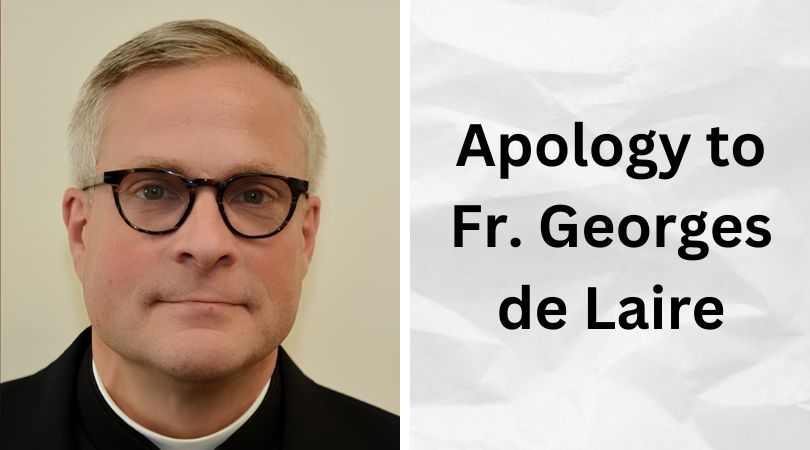PROVO, Utah (ChurchMilitant.com) – A comprehensive study on family life in the United States is revealing a high degree of partisanship among the study’s participants and only some commonalities.
The survey found that the public still largely supports the family
The ninth annual American Family Survey, released on Tuesday, examines the state of marriage and the many issues facing families, including the economy, social media, sex education and family pressures.
This year’s 100-page report, called “The Practicalities and Politicization of American Family Life,” was conducted by YouGov for the Wheatley Institute, the Deseret News and the Center for the Study of Elections and Democracy.
A principal investigator of the survey, Christopher F. Karpowitz, said, “While no single survey can cover every impactful insight, this year’s results portray that although the institution of the family remains politicized, Americans report many commonalities with how they approach their own families, and children remain a focal point.”
He qualified, however, that the struggle for American families is real, “particularly for those who fall on the lower-income scale.”
To answer the question “How are families doing?” the academic investigators make the distinction between families as they really exist in the world and “the family” as an institution.
Their findings indicate that for the former, family participants report they are doing “pretty well,” albeit not without some difficulties. For the latter, the investigators conclude, “The storm clouds loom a little more strongly on the horizon. … [A]s political scientists, we cannot help but notice that the prospects for the institution of the family seem to be related to politics.”
They list a few points of political difficulty:
Support for marriage as a path to stable, committed relationships is declining among those on the Left
With a few exceptions, the Right generally does not see a strong need to provide public support to families confronting economic trouble and vulnerability, and
The way Americans perceive challenges facing the family as an institution has less to do with the actual challenges families face and more to do with differences in partisan worldviews.
According to the report, the partisan divide between Republicans and Democrats is salient in attitudes toward marriage. Republicans generally argue that marriage is important but are far less willing to support families through government spending. On the other hand, Democrats favor spending to help families and children but are less convinced that marriage is necessary to support children.
Support for marriage increased among certain groups
Jason S. Carroll, associate director of the Wheatley Institute, said, “We are pleased to see that although the institution of marriage is not viewed as necessary by some Americans, the public still largely supports the family, and the problems families face do not differ much by partisanship.”
“Still,” Carroll said, “it is disappointing to see that family as a concept is increasingly used by political parties for their own ends. This is unfortunate; the institution of family is a vital component of American life.”
He continues, “We need a true coalition for families to put aside their prejudices and come together for the greater good.”
The report found that views on marriage fell into two partisan camps: “a Republican, church-going group that largely favors marriage” and “a Democratic, non-church-going group that is becoming more skeptical” of the institution.
But the survey also found increasing stable support for marriage among certain categories, including Blacks, Hispanics, independents, lower-income participants and those without a college degree. Those making more than $120,000 annually and those who have a college degree have decreased in their approval of marriage.
On the findings about social media, report advisor Isabel Sawhill sees conflicted attitudes among parents. She said the report shows that parents in general worry about children and social media and want the government to do something about those risks. She speculated that they don’t take action themselves because “they are overwhelmed by technology or afraid their kids are going to be disadvantaged with their friends and communities” if they don’t use social media.
Your browser does not support the video tag.
There were big partisan differences in what participants believe should be part of sex education in schools, although there was broad support for teaching something on the topic.
Another report advisor, Richard V. Reeves, president of the American Institute for Boys and Men, said he was concerned that more parents didn’t consider including the effects of pornography as part of sex education.
Parents generally don’t grasp the damaging effects of pornography
“In a world where pornography is essentially ubiquitous and the use of it is essentially universal among boys, for that not to be part of the curriculum — the boys may not understand what it is, what it can do to your brain, the addiction, etc. — I thought that was in some ways one of the most troubling findings of the survey,” Reeves lamented.
He emphasized, “It suggested to me parents are not taking seriously enough the potential effects of pornography.”
Sawhill noted that not all family issues reflect partisan disagreements. Nearly all participants regardless of party affiliation reported having a hard time balancing the demands of work with the demands of family life — something she called the “time squeeze.”
The survey was administered to over 3,000 adult respondents representing the general population based on quotas for age, race, education level, and geographic region, and aimed at creating a demographically diverse sample.















